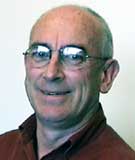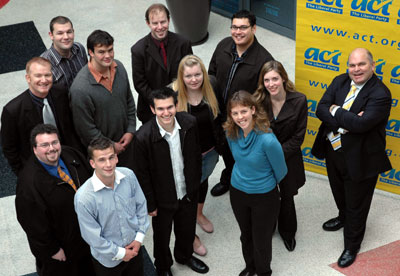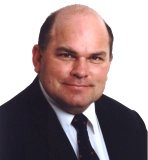
Two prominent former members of the Communist Party of NZ's, rebellious Wellington branch died recently. Rona Bailey died in September, Tama Te Kapua (Tom) Poata in November. Both played big roles in the movements of their day and both are worth study by those who wish to understand NZ today.
Here is part one of a look at Tom Poata's life.
A member of Ngati Porou tribe, Tama Poata was born in 1936 on the East Coast and was educated at Tokomaru Bay High School. In the early '50s he worked worked on the Roxburgh hydro project. There his
"conceptions of politics were shattered by contact with socialists who were involved in the '51 waterfront strike."By the 1960s he was living in Wellington, working as an organisor with the Communist Party controlled, Drivers Union and active in the Party. In 1966 the CPNZ front, the NZ Peace Council organised a demo against US President Lyndon Johnson during his visit to Wellington. A large contingent of maoris took part, led by Poata.
Already known as a firebrand, Poata spoke at the 1967 "Peace, Power & Politics Conference" in Wellington. The conference was designed to oppose NZ's involvement in the Vietnam War. Poata told the assembled peaceniks
"The struggle of the Vietnam people to obtain self-determination is similar to the Maori struggle in New Zealand. The fundamental difference between them is that real bullets are being used in Vietnam." [CPNZ's People's Voice 17 April 1968].
By 1968, Poata was the founder and Secretary/Treasurer of NZ's first "Maori Radical" group, the Maori Organisation On Human Rights". On Waitangi Day that year, Poata was involved in a protest on the steps of Parliament in which an open letter was delivered to Prime Minister Holyoake. The letter demanded withdrawal of the Maori Affairs Amendment Bill of 1967 which Poata said "
served to enhance exploitation of this country and its people by overseas capital interests" [CPNZ's People's Voice February 14].
Poata was a good "networker and in November 1968 was in Auckland. As chairman of MOOHR he addressed a meeting of people from various Maori organisations in Auckland. The meeting passed a resolution of unanimous support for the aims and objects of MOOHR and vowed to keep in touch with Poata's people in Wellington. "
The MOOHR, said Mr Poata, is against the Maori people playing any part in the Vietnam War. It wanted no part in killing Vietnamese workers and peasants who were fighting for the same rights as the Maori people themselves." [CPNZ's People's Voice 13 Nov 1968].
In March 1969 , the MOOHR condemned the Maori Council for supporting the 1970 All Black tour of South Africa and supported Syd Jackson for his leaflet "I'm against the Tour". [CPNZ's People's Voice 2 April 1969].
In May 1969 a meeting called by a young Maoist student politician, Trevor Richards was held in the executive lounge of the Auckland University Students Union. Invitations were sent to Citizens Association for Racial Equality groups, trade unions, churches, Maori groups, students organisations and the United Nations Association. The aim was to set up a radical new anti-Apartheid organisation. MOOHR sent a delegation from Wellington. Delegate Tom Poata christened the new group, Halt All Racist Tours, or HART.
In 1970 at Waitangi weekend, Poata attended the formation of the NZ Race Relations Council at Waikato University, hosted by Hamilton CARE. This was a Maoist front aimed at highlighting "racism" in NZ and Apartheid in South Africa.
Organisations represented by the 150 attending, included CARE, United Nations Association, NZ University Students Association, the Riverside Community, National Council of Churches, Public Service Association, HART, the Christian Pacifists, Christchurch Catholic Peace Fellowship, Canterbury Fabian Society, NZ Student Christian Movement, Cook Islands Society, Maori Womens Welfare League, MOOHR, Northern Drivers Union, Otage Trades Council, Society of Friends, Radical Students Association and Defence and Aid Fund for Victims of Apartheid.
Poata told the assembly "
I believe that in a revolution some people get knocked over and some are left standing. It depends on your interpretation of violence. The South African coloured people have been very passive because they've had no arms to meet violence with violence. As a trade unionist, I'm prepared to put words into action and will die doing this if necessary." [NZMonthly Review March 1970]
In 1971 Poata was elected to the executive of the NZ Race Relations Council
On June 12th 1970, the day before the All Blacks were to depart for South Africa, Poata, Don Borrie (secretary of NZ Student Christian Movement) and Paul Grocott (president of NZUSA) organised a demonstration in Wellington which held up traffic for two hours. 31 people were arrested.
In August 1970 Poata attended the Radical Activist Congress At Victoria University. He spoke at the forum on "The Exploitation of Ethnic Minorities" where he was described as "a member of the dissolved Wellington Communist Party". The Party's entire Wellington branch had recently been expelled by Auckland HQ. Poata was now an independent who worked mainly with Maoist leaning communists





















